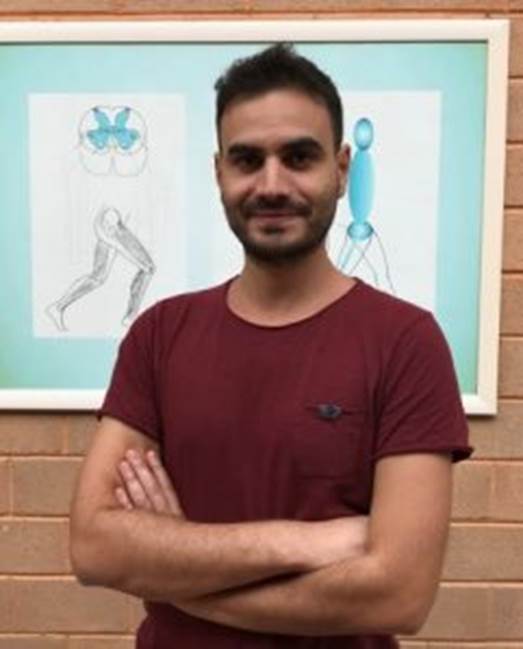Giovanni Martino, Ph. D.
Emory University School of Medicine
Abstract
Although the control of locomotion seems to be an easy and automatic process, behind this apparent simplicity there is a remarkable combination of mechanical principles, neural control, and sensory input leading to efficient muscular movements of limbs. Understanding motor control and learning even for a simple movement is a big endeavor due to the many variables that come into play. How does the nervous system harness the redundancy and the large number of degrees of freedom of the musculo-skeletal system? What is the specific role of spinal, supraspinal and proprioception systems in generating rhythmic locomotor behavior? These and other similar fundamental questions concerning the motor control mechanisms are still an open issue in neuroscience. Addressing these challenges may also have important implications in the clinical scenario. Indeed, even in the presence of small lesion of the central nervous system (CNS), patients can suffer profound locomotor impairments. Motoneurons represent the ‘final common pathway’ of the CNS and thus one may infer about what is being programmed in the CNS by evaluating the spatiotemporal motoneuron locomotor output. To get insights into the functioning of locomotor controllers, the main focus of this talk is placed on the analysis of the spatiotemporal organization of multi-muscle activity patterns in normal and pathological gait.
Speaker Bio: Dr. Giovanni Martino’s research interests are largely directed towards understanding the neural control and the biomechanics of human movement in both normal and pathological conditions. In 2012, he obtained his Master’s Degree in Bioengineering (at Roma Tre University) with a thesis titled “Muscle synergies in patients with Parkinson’s Disease”, supervised by Prof. Silvia Conforto. After graduating, he began his work experience as Research Assistant at the Centre of Space Bio-medicine at the University of Rome “Tor Vergata” led by Prof. Lacquaniti, and in collaboration with the Laboratory of Neuromotor Physiology at IRCSS Santa Lucia Foundation under the supervision of Prof. Ivanenko and Prof. Andrea d’Avella. During this period, he conducted a series of studies about locomotor coordination in patients. In 2014, he started his Ph.D. in Neuroscience during which he was involved in several projects related to the spatiotemporal architecture of multi-muscle activity in both normal and pathological adult gait, and control of locomotion in children. In particular, the PhD project focused on the exploration of how healthy subjects and patients with neurological disorders (Parkinson’s disease, Cerebellar Ataxia, Cerebral Palsy, Hereditary Spastic Paraplegia) adapt locomotor patterns to the environment, by applying recognition algorithms to the multi-muscle activation profiles. These activities have resulted in publishing 9 articles (3 of them as the first author) in various peer-reviewed journals (Journal of Neurophysiology, Plos One, Frontiers in Physiology, Cerebellum, Clinical Biomechanics, Clinical Neurophysiology). Giovanni Martino recently graduated from the University of Rome Tor Vergata’s Neuroscience Ph.D. program. Currently, he is a postdoctoral research fellow in the lab of Dr. Lena Ting at Emory University School of Medicine.
Physiology Brownbag Seminars
The Physiology Group in the School of Biological Sciences hosts Brownbag Lunchtime Seminars twice a month on Wednesdays at noon in room 1253 of the Applied Physiology Building located at 555 14th Street NW, Atlanta, GA 30318. You are welcome to bring a lunch and join us as we ruminate with us on topics in Physiology! A full listing of seminars can be found at http://pwp.gatech.edu/bmmc/physiology-brownbag-seminars-fall-2018/.
Event Details
Location:
Room 1253, 555 14th Street NW



